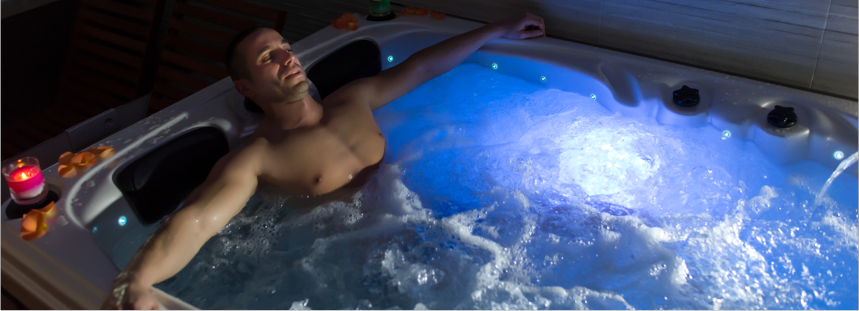Stress symptoms: Effects on your body and behaviour
Your stress levels may be affecting your health even if you don't realise it. You might think that illness is to blame for your annoying headaches, your frequent insomnia, or your decreased productivity at the office. However, stress can actually be the cause.
Stress can cause physical, emotional, and behavioural changes in your body, thoughts, and feelings. Recognising common stress symptoms can help prevent stress from becoming unmanageable. If stress isn't dealt with, it can lead to many health problems, including high blood pressure, heart diseases, obesity, and diabetes.
Stress Symptoms
Different people experience stress differently. What stresses one person out may not bother someone else at all. Some people are better at handling stress than others. And, some stress isn't bad. Stress can be helpful for accomplishing tasks and preventing injury. For example, stress causes you to slam on the brakes to avoid hitting the car ahead of you. That's good stress!
We're built to handle small amounts of stress. But, we're not equipped to handle long term, chronic stress without any negative effects.
The first step to managing stress is to understand its symptoms. Recognising stress symptoms may be harder to recognise than you think. Most of us are used to being stressed, so we don't know we're stressed until we reach our breaking point.
Stress is the body’s reaction to harmful situations, whether they're real or imagined. When you feel threatened or unsafe, a chemical reaction occurs within your body that allows you act in a way to protect yourself from harm. This reaction is called “fight-or-flight” or the stress reaction. When we're stressed, our hearts beat faster, our breath becomes shorter, our muscles tense up, and our blood pressure rises. You're now prepared to act. It is how you keep yourself safe.
What Are the Symptoms of Stress?
Stress affects all systems in the body, including the musculoskeletal, respiratory, cardiovascular, hormonal, gastrointestinal, nervous, reproductive, and immune systems.
Chronic stress causes the body's muscles to be in a more or less constant state of guardedness. When muscles are tight and tense for long periods, this could trigger other reactions of the muscles and even promote stress-induced disorders.
Stress can affect all parts of your life, including how you feel, behave, think, and even physically. None of the body parts is immune. However, because people handle stress in different ways, the symptoms of stress can vary from person to person. Symptoms can be vague, and they may be similar to those caused by medical conditions, so you need to rule out medical conditions before assuming that you're experiencing symptoms of a mental health condition It is important to discuss them (the side effects) with your doctor.
Stress can cause emotional symptoms including:
- Being easily irritated, frustrated, and moodier
- Feeling overwhelmed, like there's no way out or you're losing control.
- Finding it difficult to relax and quiet your mind.
- Feeling bad about yourself, lonely, worthless, and/or depressed
- Avoiding others
Physical symptoms of stress may include:
- Low energy headaches
- upset stomach
- diarrhea
- constipation
- nausea
- Aches, pains
- Tight muscles in the chest
Relaxation techniques to alleviate stress
Relaxation techniques and stress-relieving activities and therapies have been proven to effectively reduce muscle tension and lower the incidence of certain stress-related disorders, such as headaches. They also help improve a person’s overall sense of well-being and mental health.
For people who suffer from chronic pain, stress-relieving activities have been shown to help improve their moods and daily functioning.Relaxation activities, such as meditation, yoga, t'ai chi, breathing exercises, and muscle relaxation (we of course recommend spas!).
These recent discoveries about stress and its effects on health shouldn't leave us worried. We now understand much better how to reduce stress responses.
Beneficial strategies to alleviate stress include things like:
- Maintaining a strong social support network
- Regular physical exercise
- Getting enough sleep every night.
- Relaxing mind and body each day
To Sum Up
Make sure you take good care of your body every day. Eating right, exercising, relaxing your body and getting enough sleep can help you deal with stress much better.
Stay connected with people whose company makes you feel good, helps you be happy, and provides emotional support. A friend, family or neighbour can be a good listener or share some responsibilities so that stress doesn’t become overwhelming.
These approaches have important health benefits, and they form critical building blocks for leading a healthy lifestyle. If you need additional support or if you're experiencing extreme or chronic stress then a licensed psychologist can help identify the challenges and stress factors affecting your daily life and find methods to help you best cope.
More Articles from Spas Wholesale
- 5 Things to Consider When Buying A Spa
- Choosing the Perfect Hot Tub Gazebo or Enclosure
- Top 10 Spa Health Benefits
- Spa & Swim Spa Do's and Don'ts
- Balancing Spa pH Levels
- What causes hot tub scum
- A guide to spa water temperature
- Spa clear user guide
- Spa safety considerations
- Spa water temperature guide
- How to prevent spa algae
- Keeping your spa water balanced
- Starting the spa with new water





























Share:
Simple, Effective Hot Tub Stretches
7 things to look for when buying a spa